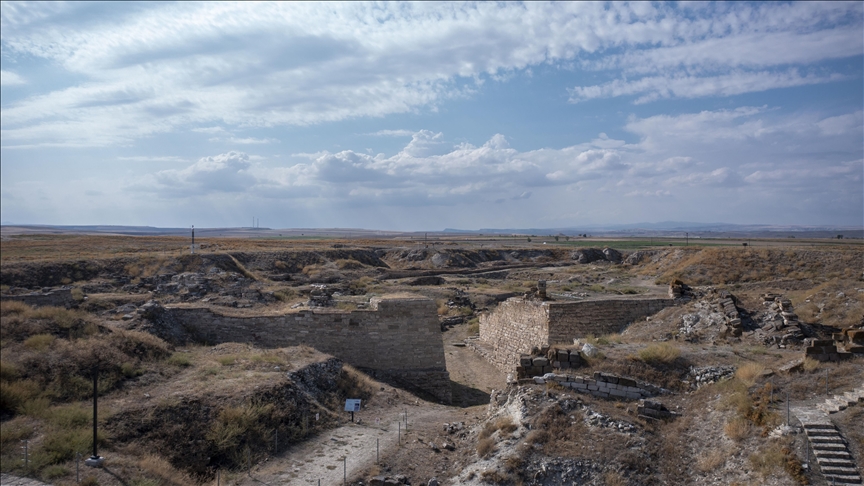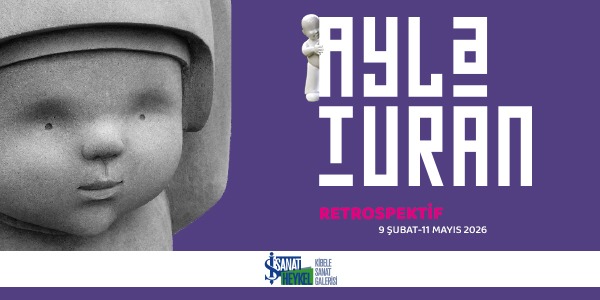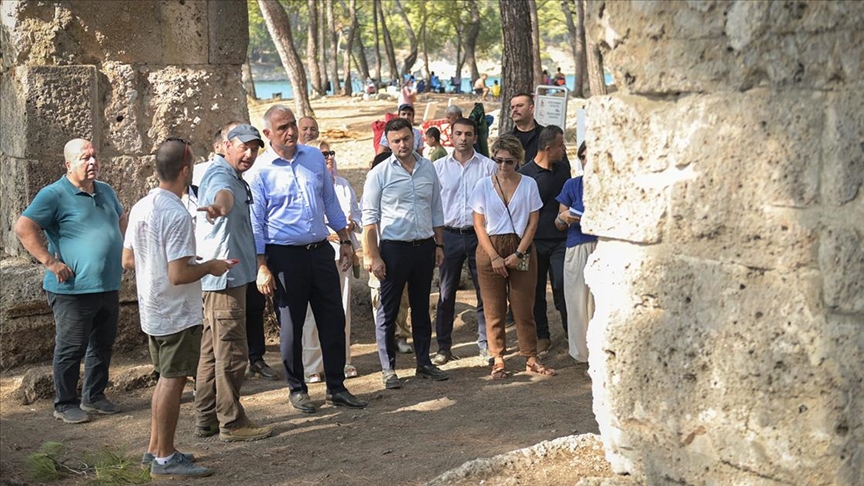The ancient city of Gordion in Ankara’s Polatlı district, one of the most important archaeological sites of the ancient era, has been inscribed on the UNESCO World Heritage list.
According to a statement made by the Culture and Tourism Ministry, with the decision taken at the 45th UNESCO World Heritage Committee meeting held in Riyadh, the capital of Saudi Arabia, Gordion will be protected as a world heritage.
Announcing the news on his social media account, Culture and Tourism Minister Mehmet Nuri Ersoy said: “We have good news! We have registered our 20th artifact on the UNESCO World Heritage List. The ancient city of Gordion, one of the unique cultural assets of Ankara, has become a ‘World Heritage.’ Thank you to those who contributed. However, it is not over yet. We are waiting for another good news from UNESCO. Hopefully, we will increase our number on the World Heritage List even with the good news we expect to receive from the wooden-supported mosques of Anatolia. Good luck.”
On the official site of UNESCO, the ancient city of Goedion is described as: “Located in an open rural landscape, the archaeological site of Gordion is a multi-layered ancient settlement, encompassing the remains of the ancient capital of Phrygia, an Iron Age independent kingdom.”
“The key elements of this archaeological site include the Citadel Mound, the Lower Town, the Outer Town and Fortifications, and several burial mounds and tumuli with their surrounding landscape. Archaeological excavations and research have revealed a wealth of remains that document construction techniques, spatial arrangements, defensive structures and inhumation practices that shed light on Phrygian culture and economy.”
Gordian knot
In 333 BC, Alexander the Great famously dealt with the Gordian Knot (also spelled Gordion), an intricate knot that secured the yoke to the pole of a Phrygian wagon on the acropolis of a city.
This wagon had historical connections to figures such as Midas and Gordias; legend has it that whoever could untangle the knot would gain great power and could “conquer Asia.”
Instead of untying it, Alexander instead took his sword and cut through it. Two years later, in 331 BC, he defeated the Persian Emperor Darius, dealing the final blow to his Asian empire.









